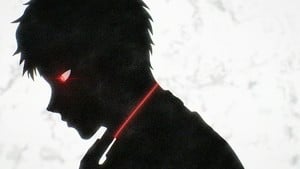The Summer Hikaru Died
Episode 11
by Steve Jones,
How would you rate episode 11 of
The Summer Hikaru Died ?
Community score: 4.4

There's no single satisfactory definition of love, but if I had to explain one part of it, I'd call it an overwhelming desire to protect another person. While that sounds nice and noble, I think we all know the many ways that people can warp it into something destructive. If we take this week's backstory at its word, then love was indeed behind the Indo's original sin, with one man making a horrific Faustian bargain to save his wife, only to make her (and many others) suffer a nightmarish fate. The visual parallels with Hikaru's severed head from last week help us imagine how Yoshiki might have acted similarly. There's plenty that each of us would sacrifice for the sake of love. Hikaru, too, feels this way, but to protect Yoshiki, the offering he sacrifices may have to be himself.
I highly doubt we have the full picture, though. Yoshiki notes that there are still a number of holes in the story, and the truth about Hichi is just a piece, not the complete puzzle. I'm not too concerned about getting all the answers—the mystery is only as important as its relation to the themes surrounding Hikaru and Yoshiki—but we do get one highly unexpected revelation in the form of a Renaissance-era drawing. Rafanelli, likely a composite of Raphael and da Vinci, sketched a vision of Gehenna that looks quite familiar to us. “Gehenna,” incidentally, is a Biblical term that often refers to hell, and the Japanese translation in his book is exactly that (jigoku). Is it possible, then, that Hikaru's presence actually has something to do with the Christian refugees who settled in the mountain? Is Hikaru even older than the legend of Nonuki-sama implies? Or is Hikaru not alone after all?
Hikaru's actions continue to be driven by his loneliness, both consciously and subconsciously. He refuses to accept his bone back because he doesn't want Yoshiki to turn on him again; he would rather be weak than be reviled. Tragically, though, that weakness also makes him more susceptible to his base emotions and desires. The scar around his neck symbolizes the fraying barrier between Hikaru's id and ego, and his id goes haywire in that hallway scene. Yoshiki remarks on Hikaru's now-monstrous appearance, which petrifies him, yet when Hikaru tries to consume him again, Yoshiki doesn't feel pain. Even in that state, Hikaru does not want to hurt Yoshiki. He might be weak enough that it would be impossible anyway, and Yoshiki might already be “mixed” enough to negate any barrier between them.
In the flashback, we see that Yoshiki developed a soft spot for monsters at an early age. It's hilariously unsubtle storytelling, but you have to admit that he's right. A monster-of-the-week series needs a new monster every week, so it's no surprise they get a cooler and more diverse set of creature designs when compared to the heroes. The pathos of “the monster” is also something The Summer Hikaru Died cares a lot about, especially when you consider its queer themes. Villains have a long history of being queer-coded, and the contemporary queer audience frequently reclaims them. With Hikaru, that reading is baked in. No matter what kind of eldritch monstrosity he may metamorphose into, Hikaru will always remain a blorbo.
Therefore, it's heartbreaking to watch Hikaru run to Kurebayashi for help. He no longer trusts himself. While he claims not to understand humans, he doesn't understand his own interiority much better. He's adrift. To Kurebayashi's credit, although she's frightened by him, she still flinches when he suggests going back to the mountains. While she might know more than she's letting on, she looks like she genuinely pities him, as she would any teenager who cries about loneliness in front of her. In the end, she's a big softie. She can't bring herself to hurt him, even if every logical bone in her body is telling her it would be the right move. After all, sacrificing Hikaru for the sake of everyone else's happiness would be, in effect, the same sin the Indo ancestor committed. A life for a life is no way to bargain. But will Hikaru make the same choice about himself?
On the other side of the narrative, the dad feelings in this episode are huge. After their dip into exposition, Yoshiki and his old man have an overdue heart-to-heart, albeit one emotionally restrained by their mutual machismo. Still, it's touching to see how closely his father's relationship with Hikaru's dad mirrored Yoshiki's with Hikaru, to the extent that Yoshiki even realizes it. However, his dad explicitly doesn't want Yoshiki to turn out like him. He wants Yoshiki to be better and have more. This contextualizes his dad's self-imposed exile from the rest of his family—in a sense, he's performing a penance similar to the one the Indo family carried out for generations. Alone in the mountains, Hikaru's dad wished to spare his son from the same fate. However, these outwardly selfless motivations continue to wreak pain on their families. Intentions are secondary to their effects. There's no way they can do so independently, but by being honest and open with each other, Yoshiki and Hikaru can break this cycle together.
Rating:
The Summer Hikaru Died is currently streaming on Netflix.
Disclosure: Kadokawa World Entertainment (KWE), a wholly owned subsidiary of Kadokawa Corporation, is the majority owner of Anime News Network, LLC. One or more of the companies mentioned in this article are part of the Kadokawa Group of Companies.
discuss this in the forum (23 posts) |
back to The Summer Hikaru Died
Episode Review homepage / archives